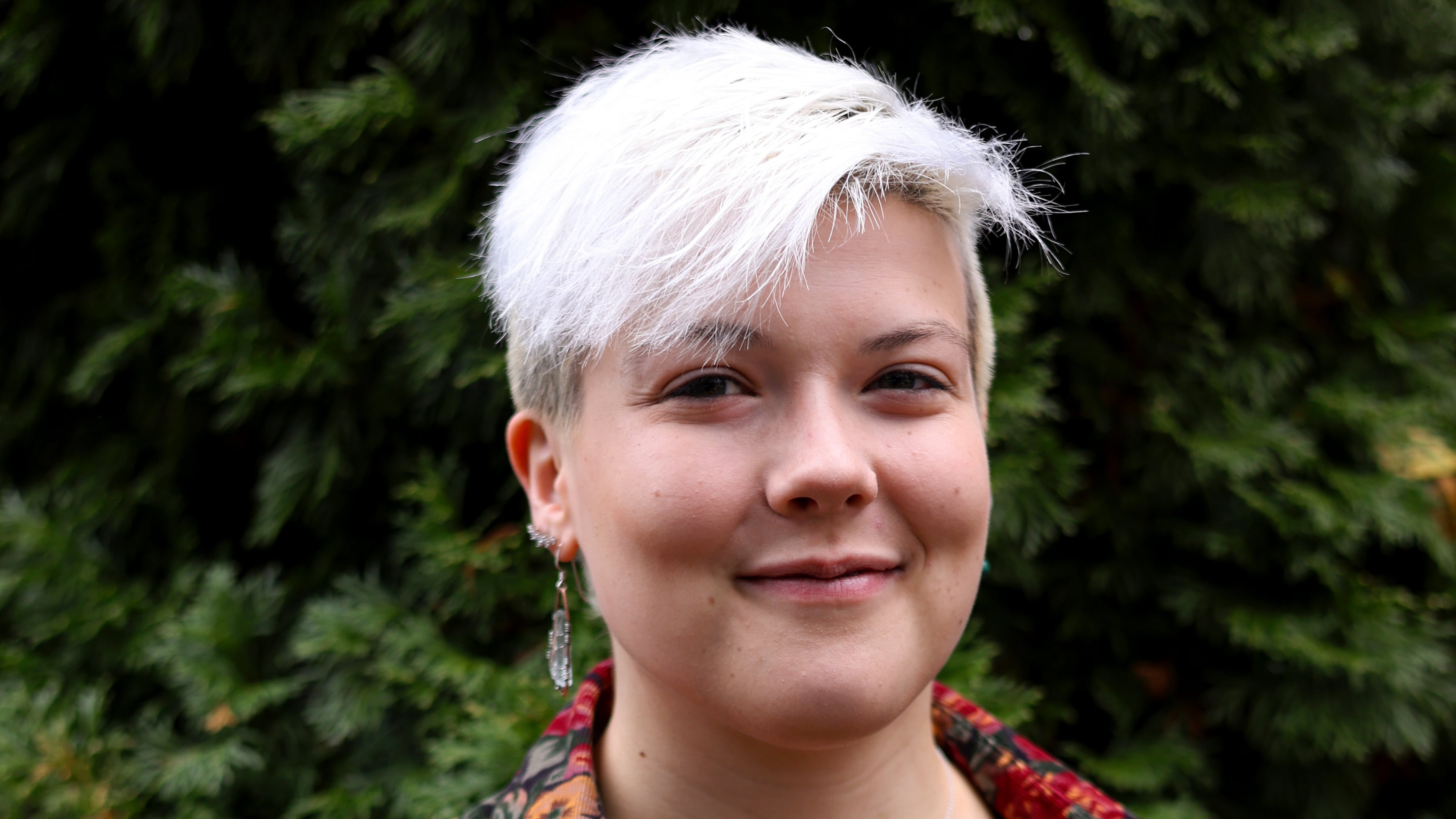It wasn’t so long ago that having inadvertently dated a trans person was a go-to punchline for hack comedians and sitcom writers, and “minefield” was the image most commonly used by trans folks when describing their experiences on dating apps or meeting people IRL.
What’s dating like in Portland for trans people today, though, nearly 10 years past the media-proclaimed Transgender Tipping Point? To learn, I reached out to some people I know. Every trans experience is different, of course, but hopefully this provides a diverse snapshot of where things stand here in the Rose City.
The biggest theme I heard in my interviews was sadness verging on frustration and fear about cis folks’ lack of understanding regarding trans bodies and identities. Cosmo, a transmasc nonbinary person, for instance, chooses only to date within the trans community, saying, “I have never been a woman, nor have I acted in ways that are expected of women, but in my relationships with cis people, my way of existing feels more like a rebellion. Other trans people just get a fundamental part of my experience.”
Similarly, Hazel, a trans woman, said she stays off apps to avoid harassment and “chasers” (cis men who fetishize trans femmes). She dates in the community because “trans people are just hotter than cis people. Also, there’s significantly less risk with other trans people.”
T4T—trans for trans—dating wasn’t a universal approach among the folks I spoke with, though. Gavin, a trans man, says he avoids the practice because, while “being understood is lovely...there is only so much shared trauma that one relationship can handle.”
About two-thirds of the people I spoke with are polyamorous. To Juliet, a trans woman, this feels nearly inevitable. “It’s pretty hard to date and be monogamous and queer in Portland,” she says. “Queer Portland is basically one giant polycule with different branches.”
Even some of those who didn’t view themselves as poly expressed an openness toward it. As Darling, a trans woman, put it: “My ideal dating situation isn’t poly, but I wouldn’t expect a relationship to be monogamous from the word go. It’s OK to go on dates and figure stuff out.”
While Hazel avoids apps, the majority of folks I interviewed use them, though not without trepidation. As a transmasc nonbinary person who asked to remain anonymous says: “Dating apps rely so much on first impressions and visual appearance. As an early-transition trans person, I end up matching with people who assume my gender incorrectly and then unmatch me as soon as they read my bio. It’s frustrating.”
The people I interviewed shared a picture of dating that’s become more fluid than we generally see depicted in culture. One transmasc nonbinary person who also wished to remain anonymous said: “A lot of my trans friends are more willing to push into traditionally romantic territory with each other while still being friends. I’ve been within groups that flirt near constantly, cuddle, and kiss each other on a sometimes-daily basis. What I’ve seen is hard to put any sort of label on.”
Similarly, Darling says: “Navigating different engagements along asexual and demisexual lines is complex. If you want a relationship and sex, it can sometimes be a game of finding out who just wants one and what someone expects from the other.”
When I asked what he’d like to see change in dating, Trey, a trans man, answered, “For our bodies to be seen as desired and worthy of safe, romantic, intimate, and sexual experiences and not seen as fetish or a taboo experience. We are humans.”
The response I received that left me the most hopeful came from Ezra, a trans man, who argued that dating while trans isn’t really that different from dating as cis. “Either way, we are just people trying to see and be seen, and touch and be touched, with care and compassion,” he says. “It should be the standard to consider your partner as a holistic being with their own agency and love. I want cis people to experience love just as beautiful and complex as I’ve been able to find with other trans people.”
Mikki Gillette is a trans woman playwright in Portland. Her most recent local show is They Them Their. Read more of her work at mikkigillette.com.
